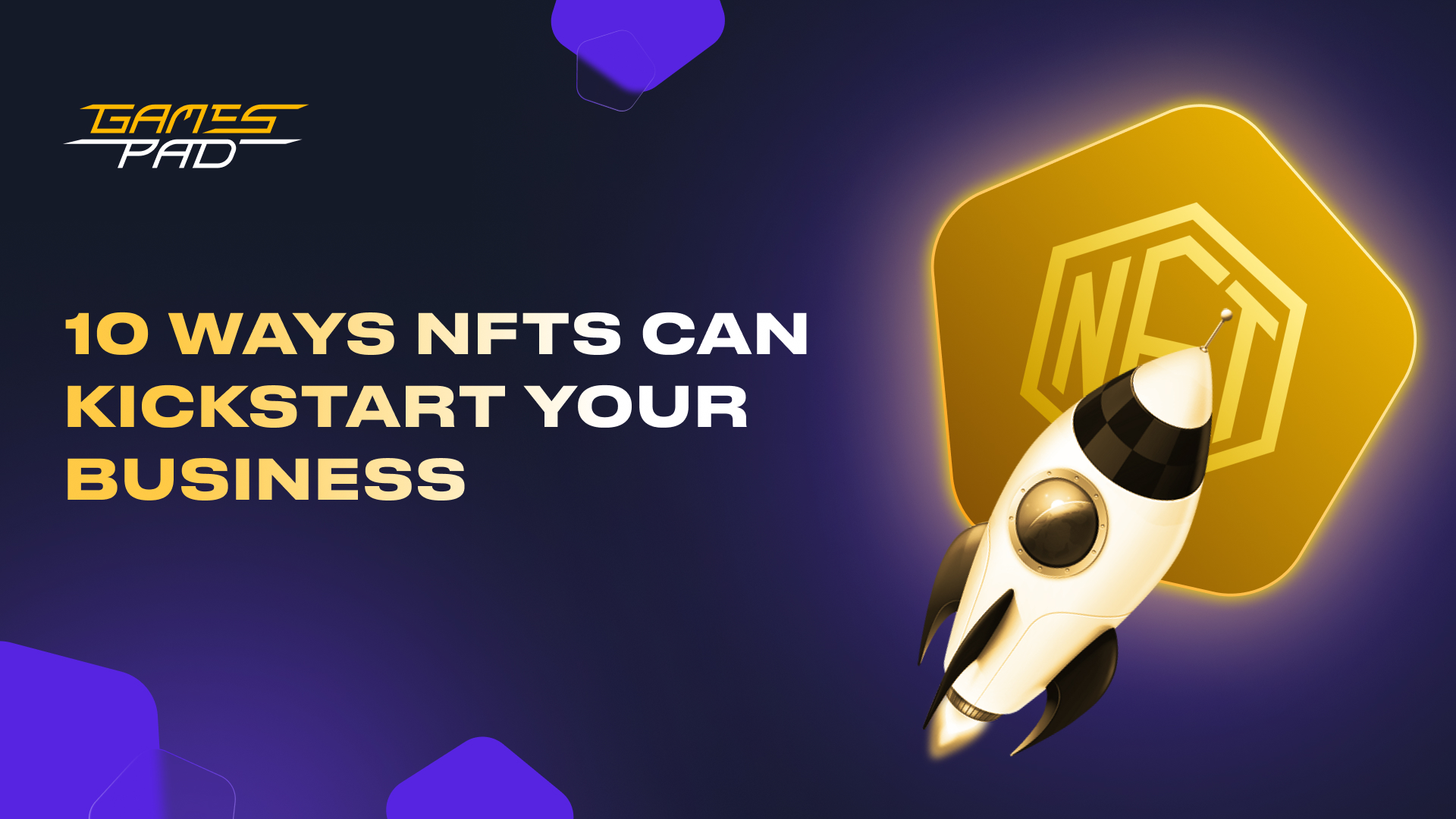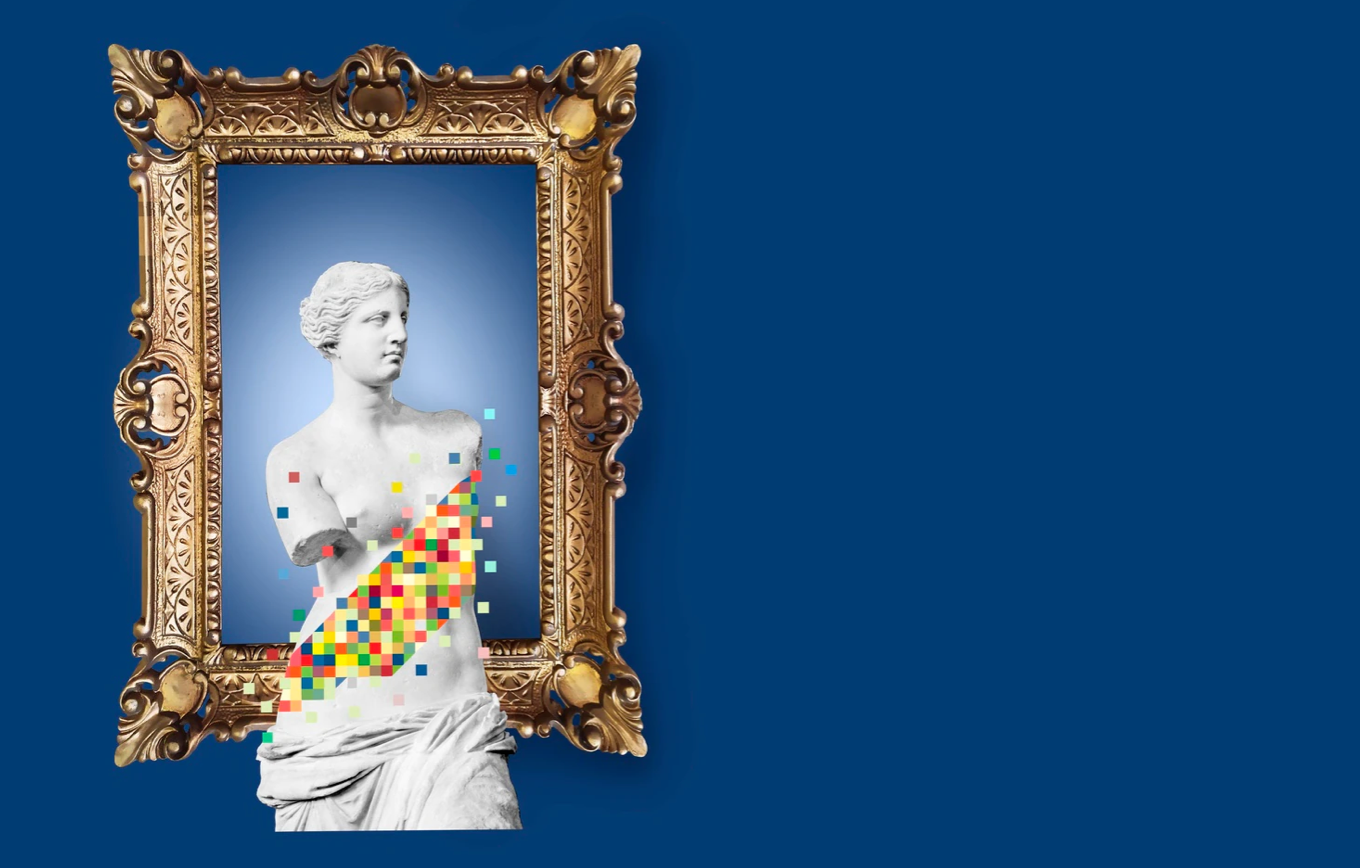
How can NFTs help you kickstart your business? Non-fungible tokens, or NFTs, are digital assets that have become increasingly popular in the business world. They are unique and immutable cryptographic tokens created on a blockchain network with each token representing a single asset. Unlike traditional currencies such as dollars or euros, NFTs can represent anything from artwork to music to collectibles – making them highly desirable for businesses looking to capitalize on their value.
NFTs offer numerous opportunities for businesses of all sizes: they can be used as digital trading cards, virtual art galleries, secure online storage units, and even as crypto collectibles. With this growing popularity comes the potential for exponential growth in revenue and market share.
By leveraging the power of NFTs, businesses can create new ways to engage customers while also creating an entirely new type of asset class that is both valuable and secure. In this article, we will explore 10 different ways your business can use NFTs to kickstart its success. Read on!

NFTs can be an effective way to create excitement around your brand and engage customers. By issuing NFTs as rewards or incentives, businesses can increase user engagement and loyalty while also creating a unique digital asset that can be traded and exchanged.
Additionally, NFTs can be used in marketing campaigns to drive awareness for a particular product or service. By leveraging the power of NFTs, businesses can reach an entirely new audience and drive more sales.
To properly leverage NFTs for marketing purposes, businesses should first consider their target audience. What type of people would respond best to an NFT campaign? What types of assets are likely to excite them? Once these questions have been answered, businesses should then look into different strategies that will help them maximize the potential of their marketing efforts.
These strategies could include creating limited-edition items such as virtual art pieces or gaming characters, offering discounts on products when purchased with specific tokens, or promoting the use of certain NFTs across various social media platforms.
Businesses should also ensure that they are compliant with all applicable laws and regulations before launching any type of crypto campaign. Additionally, companies should be aware that while NFTs offer great potential for driving customer engagement, they do come with inherent risks that need to be managed properly in order to avoid any issues down the line. When properly utilized, however, NFTs can serve as an excellent tool for boosting brand awareness and increasing customer loyalty.
As mentioned above, NFTs are digital items that can represent anything from artwork to music to collectibles. For businesses, NFTs offer a way to make their products and services more exciting and unique. By connecting your offerings with NFTs, you can create something special that is worth more than what it normally would be.
You could do this by offering discounts on products when they are purchased with certain tokens or by creating limited-edition virtual art pieces, game-in characters, or literally anything.
If everything connected with linking your offerings with NFTs is done correctly, it can help boost customer engagement and loyalty while also increasing brand awareness.

NFTs have come a long way since they were first introduced as digital collectibles. Nowadays, they are used in a variety of ways to extend digital product lines beyond simple collections of artwork or music.
One way businesses can leverage NFTs is by offering limited-edition virtual art pieces and gaming characters that are only available through the purchase of specific tokens. This creates a sense of exclusivity and demand for these rare digital assets, which can increase customer engagement and loyalty while also driving awareness for a particular product or service.
Additionally, with the rise of blockchain technology, businesses can also create their own custom tokens to represent specific products or services – giving customers more options than ever before.
Another innovative use for NFTs is to create secure online storage units that store digital documents, files, or other valuable assets. This ensures that the assets remain safe and secure even if the user doesn’t have physical access to them. NFTs can also be used as digital trading cards that represent ownership over certain items or experiences – allowing users to buy, sell, trade, and hold onto their assets with ease.
There so many examples of businesses that have successfully utilized NFTs for product expansion. Let’s check out some of them.
One example of a business successfully utilizing NFTs for product expansion is gaming giant Ubisoft. The company created their own NFT-based game called Hashcraft, which allows players to create and explore virtual worlds built on the Ethereum blockchain. Players can use the Ethereum ($ETH) token to buy, sell, trade, and hold certain in-game assets such as rare characters or items. This has enabled Ubisoft to extend their product line with a unique and innovative digital experience that appeals to gamers across the world.
Luxury fashion brands like Gucci and Louis Vuitton have created their unique NFT collections featuring their iconic products; what is more, Prada has launched an immersive experience in Decentraland (a unique digital world) that allows users to explore a virtual replica of the brand’s flagship store in Tokyo.
NFTs offer businesses the potential to build trust and authenticity for their brands. As digital assets, NFTs provide an immutable record of ownership, allowing customers to verify that the product or service they are purchasing is genuine and not counterfeit. This helps create an atmosphere of trust between the brand and its customers while also increasing customer loyalty.
In addition, NFTs can be used to authenticate products or services by providing a unique identifier that verifies that the item is genuine. This can help eliminate fraud and increase consumer confidence in the product or service. For example, brands like Nike have implemented NFTs into their production process to embed a unique identifier into each pair of shoes produced – allowing them to track the authenticity of each unit with ease.
Another benefit of using NFTs is that it eliminates the middleman when it comes to trading digital assets. By leveraging blockchain technology, businesses can ensure that all transactions are secure and transparent while still ensuring privacy for users. This allows buyers and sellers to interact directly without having to worry about trusting third parties with their data (which can lead to scams).
Finally, businesses can use NFTs as a way to reward loyal customers with unique experiences or exclusive digital assets. This allows companies to create an emotional connection with their customers and show appreciation for their support in a tangible way – further building trust and loyalty towards the brand.
NFTs have the potential to transform traditional business models in a number of ways. By utilizing blockchain technology, businesses can reduce costs associated with middlemen, create new product lines that are more engageable, and authenticate products more securely. Additionally, NFTs can be used to build trust between customers and brands, incentivize loyalty, and offer unique experiences to customers.
One example of how traditional business models might be impacted by NFTs is through their use in digital asset trading. Businesses are now able to use NFTs to represent ownership over digital assets which eliminates the need for third-party intermediaries or brokers. This helps reduce costs associated with transaction fees while allowing for more secure transactions due to the immutable nature of blockchain technology.
Another potential use case for NFTs in traditional business models is authentication. By embedding a unique identifier into each unit produced (such as an individual pair of shoes), businesses can authenticate their products with ease – reducing the risk of counterfeiting and fraud while also increasing consumer confidence in the product or service they are purchasing.
Finally, businesses can use NFTs as a way to incentivize customer loyalty and engagement by offering rewards or exclusive items only available via tokens or special collections. This creates an emotional connection between customers and the brand, which helps reinforce loyalty while also boosting brand awareness through word-of-mouth marketing.
Overall, NFTs offer many potential benefits to traditional business models that should not be overlooked. By leveraging these digital assets, companies may be able to improve customer engagement while also reducing overhead costs associated with third-party intermediaries or brokers. Additionally, businesses can create unique experiences that will help increase customer satisfaction while building trust in their brand – all of which could lead to increased profits over time.

The adoption of NFTs by brands has many potential benefits, including improving customer loyalty by offering rewards or exclusive items only available via tokens, reducing costs associated with middlemen, creating new product lines that are more engaging, and authenticating products more securely. The possibilities for utilizing this technology in traditional business models are vast – allowing companies to potentially revolutionize how they operate in today’s competitive marketplaces.
Before getting started, it’s important to research different NFT platforms and understand the features and functionalities each offers. This will help ensure that the platform chosen best suits the business needs.
Once the business has chosen an appropriate platform, it’s essential to identify potential use cases for the NFTs. This could include authenticating products or services, offering exclusive rewards and experiences to customers, or trading digital assets with more efficiency.
Once the use cases have been identified, businesses must develop their product or service that will be offered as an NFT. This process may involve creating technical specifications, designing artwork/graphics, and setting up smart contracts for NFT transactions.
After developing their product or service, businesses should integrate it with a blockchain network in order to enable secure peer-to-peer transactions using NFTs. It’s important to note that this process requires a certain level of technical expertise, so companies should hire experienced engineers if necessary.
Finally, businesses can launch their product or service using a reputable NFT marketplace. This allows users to purchase tokens directly from the marketplace while also providing visibility for your product/service across multiple networks.

NFTs can help businesses offer limited-edition or exclusive products. They are digital assets that use blockchain technology to protect them, keep them secure, and make sure no one else has the same product. This lets businesses offer special things that you can’t get anywhere else. It not only creates a competitive edge for businesses but also helps create an emotional connection between the customer and the brand. Customers feel special knowing that they have something no one else does, and it makes them more likely to stay loyal to the company.
NFTs can also be used to reward customers with unique experiences or exclusive digital assets. This could include access to exclusive content, discounts on upcoming products or events, and other items that you wouldn’t be able to get anywhere else. By offering these incentives, companies are able to strengthen their bond with their customers while also showing appreciation for their loyalty in a tangible way.
NFTs are a great way for businesses to maximize their profits by selling high-value digital assets. By leveraging the security and immutability of blockchain technology, companies can offer rare digital assets that customers may be willing to pay top dollar for. These assets could include virtual or augmented reality experiences, exclusive artwork, video games with special features or levels, or other unique items.
Moreover, NFTs provide businesses with the opportunity to offer limited edition items that can be sold at a premium price point. This allows them to capitalize on an asset’s scarcity, as customers may be more likely to purchase something that they know is one-of-a-kind. Additionally, it allows companies to easily track ownership of the asset and ensure authenticity – thus bolstering customer confidence in their purchases.
NFTs can also be used to raise money – as a powerful fundraising tool for startups and established businesses alike. By leveraging the tokenization of digital assets, companies can potentially raise funds in a more efficient and cost-effective way than traditional methods.
Using NFTs to raise funds is typically referred to as an Initial Coin Offering (ICO), Initial NFT Offering (INO), or Security Token Offering (STO). Using these types of offerings, investors purchase tokens and/or NFTs in exchange for access to certain features or potential returns on their investment. This has the potential to reduce costs associated with middlemen or brokers while also providing investors with more direct access to the company’s products or services.
Furthermore, NFTs offer additional benefits that make them attractive from an investor’s perspective. These digital assets are typically backed by real-world assets such as stocks, bonds, commodities, collectibles, art pieces, and more – making them less volatile than other digital assets. Additionally, investors can easily transfer ownership of these digital assets without having to rely on third-party intermediaries or brokers. This reduces friction and increases transparency in the process while also reducing the risk of fraud or counterfeiting.
For startups looking to make a splash with their launch, investing in NFTs may be a great way to attract attention from potential investors while also offering value in return for their contribution.

So, NFT for business and business growth is something truly special! NFTs offer small businesses (and not only) a wide range of opportunities to increase their visibility, drive customer loyalty, raise funds and maximize profits. From leveraging the security of blockchain technology to offering exclusive digital assets or experiences for customers, NFTs have opened up exciting new possibilities for companies looking to grow in today’s market.
With so many potential use cases available to explore, it’s no wonder why more and more businesses are turning towards this innovative form of asset monetization. If you want your business to stand out from the crowd and capitalize on these unique opportunities offered by NFTs, now is the time to get started!
We hope you’ve enjoyed the article about how to kickstart your business with NFTs – unique digital assets, and will find something special for your NFT project or NFT trend. Whethere you’re an NFT holder or still a newbie, you should also be aware of NFT technology in general: brand loyalty (a loyalty program), digital proof, an NFT drop, how to own NFTs, sell NFTs, how to have an exclusive access, supply chain management, HVAC business, brand identity, and digital art in general. Find out much more in our GamesPad blog!
Would you like to start investing in the most impactful crypto gaming, NFT and metaverse projects with GamesPad? Learn how in this comprehensive tutorial!
Disclaimer. This material should not be construed as a basis for making investment decisions or as a recommendation to participate in investment transactions. Trading digital assets may involve significant risks and can result in the loss of invested capital. Therefore, you must ensure that you fully understand the risk involved, consider your level of experience, investment objectives, and seek independent financial advice if necessary.